Keeping track of the 'transients'
A homelessness ride-along with the Sebastopol PD
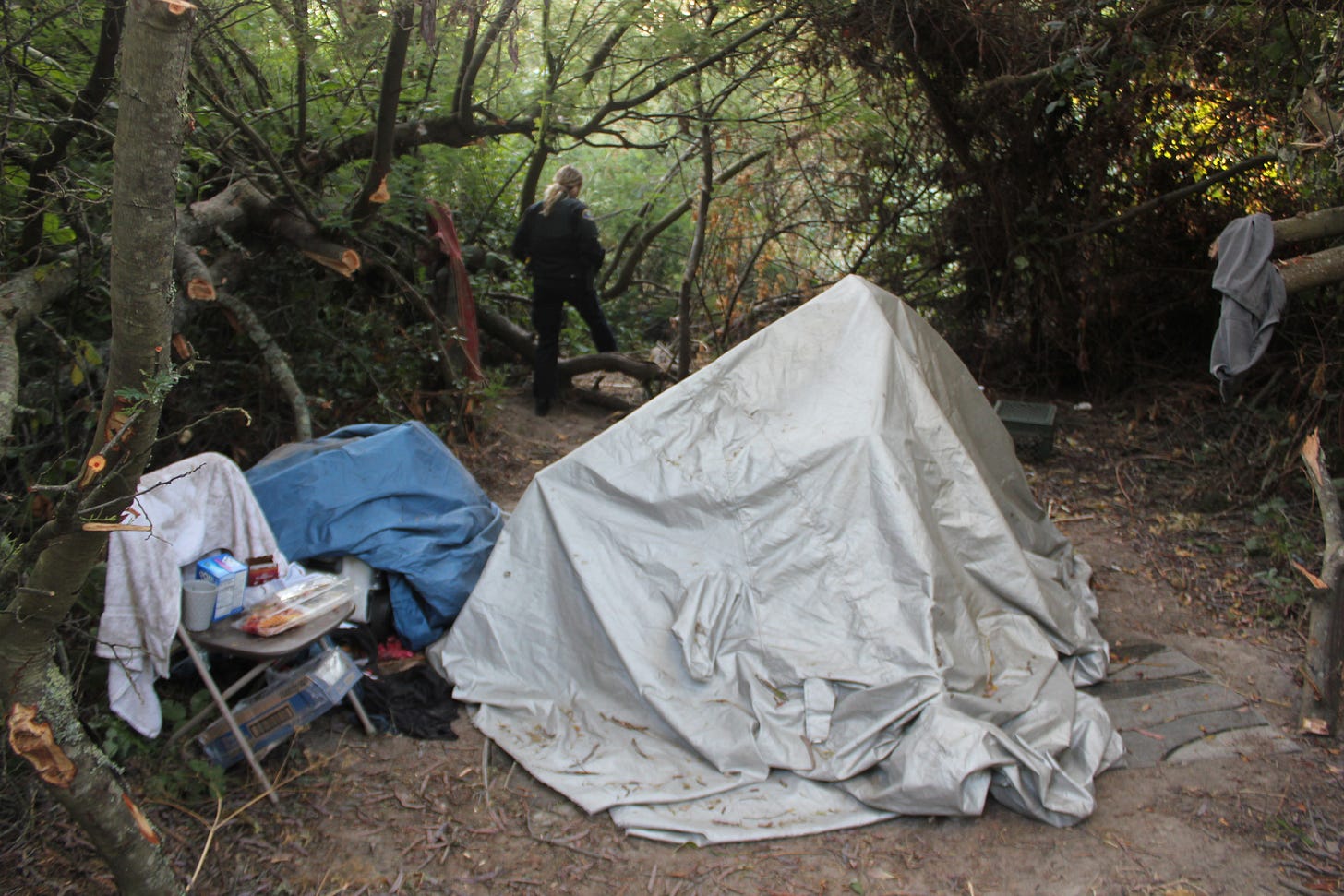
It is 6:30 on a Friday morning, and Paige Thomas, an officer with the Sebastopol Police Department, is checking in on the city’s homeless, unhoused, or—as the cops call it—transient population.
According to Police Chief Ron Nelson, the department dedicates half of their time to activities relating to this community, maybe even more.
First order of business on this foggy dawn is to check near city hall, then check inside the bathrooms near the downtown plaza, where the homeless have been known to make fires at night.
Gross, but no people.
Next Thomas gets in her police car and drives west. She points out Daryl, one of the city’s homeless who is out for a walk.
Daryl is sick, so much so that, according to Thomas, the department lets Daryl get away with stuff they “probably shouldn’t.”
Such is the case with much of the city’s homeless, to the chagrin of many Sebastopol residents. An apparent lack of punishment for the actions of the homeless has inspired locals who pride themselves on social tolerance to ask for less of it.
Things that were once thought of as punishable offenses—indecent exposure, public defecation, possession of Schedule I drugs—are still crimes, but they’re misdemeanors.
And the county jail won’t take anyone for misdemeanors, and the state’s mental institutions won’t force anyone into treatment.
So the Sebastopol PD’s hands are tied. They can cite people, tell them they need to go to a court date, but usually they don’t even show up. That tends to be, for all intents and purposes, the end of the story.
If they’re under the influence of drugs, they are sent to get a blood or urine test. “It is an option, and they can refuse,” Chief Nelson explained to me before the ride-along. “Guess what? Most of the time they refuse, and guess what happens to the case? It doesn’t get prosecuted.”
“Meanwhile, I’ve tied up an officer for two or three hours, transporting them to jail or having to take them to to the hospital for medical care, and we’re leaving the city somewhat uncovered. So arresting everybody isn’t going to solve the problem.”
Next stop: Ives Park.
“There would be people sleeping in tents here when I started [three years ago],” Thomas recalls, as a homeless person named Elliott—the only one around it seems—pushes along a stroller with no baby in it.
“He used to get a lot of calls for service,” Thomas says about Elliott. “Then he went to jail for a while, came back and was pretty sober. He came and apologized to us.”
Thomas tells me she has developed personal relationships with many of the city’s homeless, since she is often the one to tell them about a court date or to console them at their worst moments.
While Thomas and her colleagues are implored by many Sebastopol residents everyday to more-or-less get rid of them, Thomas tells me that once a homeless person is awake for the day, the police don’t have much power to stop them from simply hanging out in a public space.
And, while executive orders to clean up public camping from California Governor Gavin Newsom and San Francisco Mayor London Breed have been enacted in their own jurisdictions over the past month, Sebastopol is limited in what they can do as a result of the ACLU’s lawsuit against the city (read more about that here).
“Hey Scott, it’s Paige Thomas,” Thomas says, waking a man up. We are now near the West County Museum. Scott is visibly startled and asks for some privacy to start his day. “We usually do wake people up, and it scares them,” Thomas tells me.
Rather than jotting everything down or putting it into the computer herself, Thomas reports the scenes she arrives upon to a dispatcher back at the station.
After a couple other stops around town, Thomas heads toward the Joe Rodota Trail, which she is allowed to drive on. We get out of the car and walk under and over branches to discover pockets of the forest where the homeless population have set up shop, so to speak.
Several empty tents and forts emerge. Also the leftovers of a treehouse.
At one point Thomas directs my attention to a pink biohazard bag hanging from a tree. It’s filled with needles. “That’d be a good picture,” she says.
Despite being out in the open, this paraphernalia is somewhat hidden among the mess which surrounds it.
Imagine that instead of having your recycling and trash picked up every week, it was simply dumped out in your backyard along with all of your laundry, now covered with layers of wet and dried dew.
Eventually we meet Tyler, who is walking his bike after a ride. Officer Thomas gently but sternly grills him about his warrants. He blames his having to “babysit” all the other homeless as the reason he didn’t show up to a previous court date.
Tyler’s things are scattered, sorted out in piles a few yards from one another that maybe at some point were supposed to make sense.
When I ask Tyler about his future, his reply centers around the thesis that everything is bullshit. All jobs are government jobs, he says, and all government jobs give you fake money.
“They're not even backed by silver anymore,” says Tyler.
“I don’t know what I’m going to do,” he repeats many times.
After Tyler, Thomas leads me to a campsite where three people are hanging out. A meth pipe is out on a table next to a bong that has just been put down. Thomas tells a man to do a better job hiding it next time.
There’s a couple people in a large tent. They’re in line to get housing, they say, but nothing is set in stone.
It’s complicated.
Their dog, they tell me, has started to go viral on TikTok.
And we bid them farewell. No arrests, back to the station. Someone will make the rounds later.
Says Chief Nelson: “The days of, ‘You got until sunset to get out of town, sir’—they're long gone.”


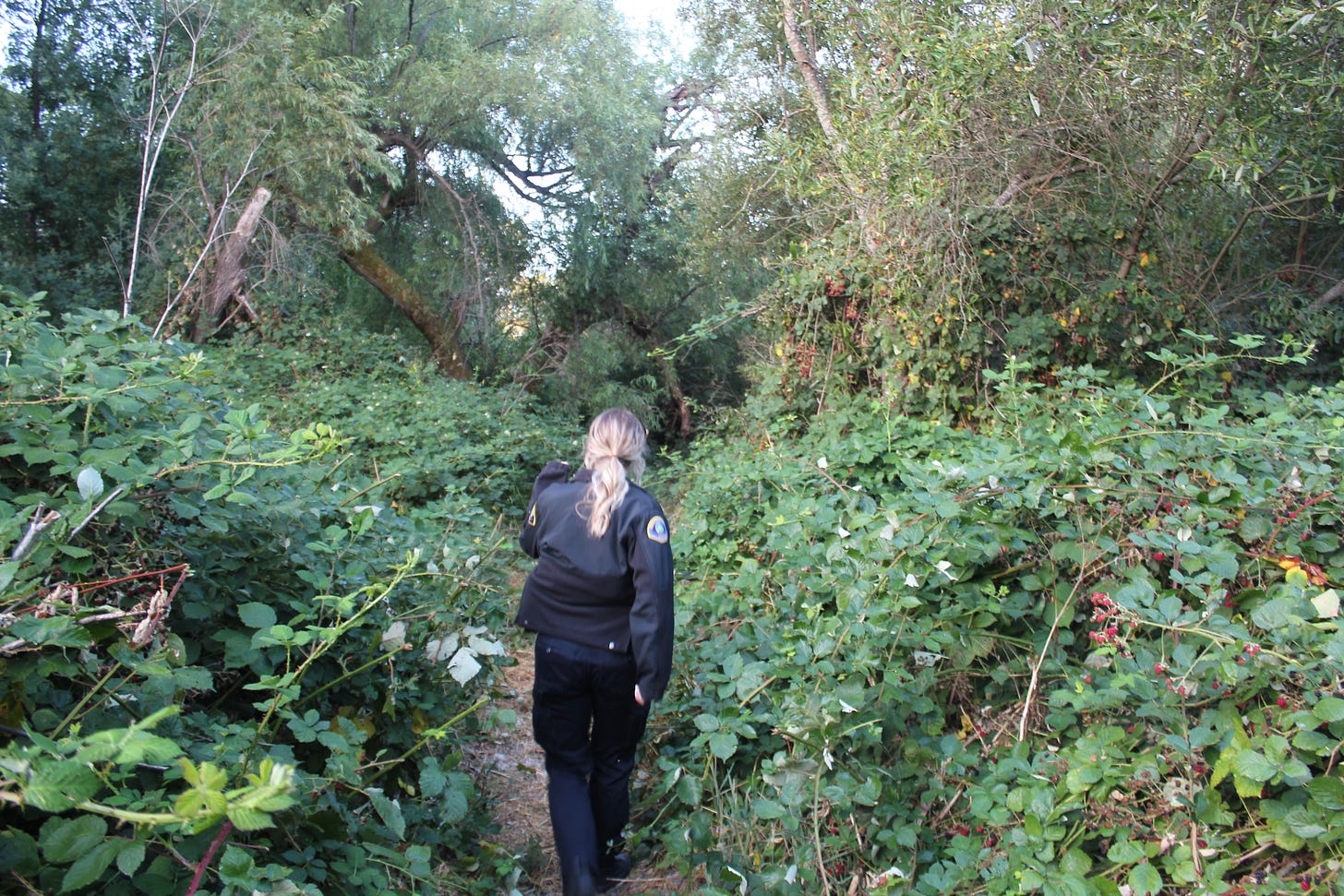
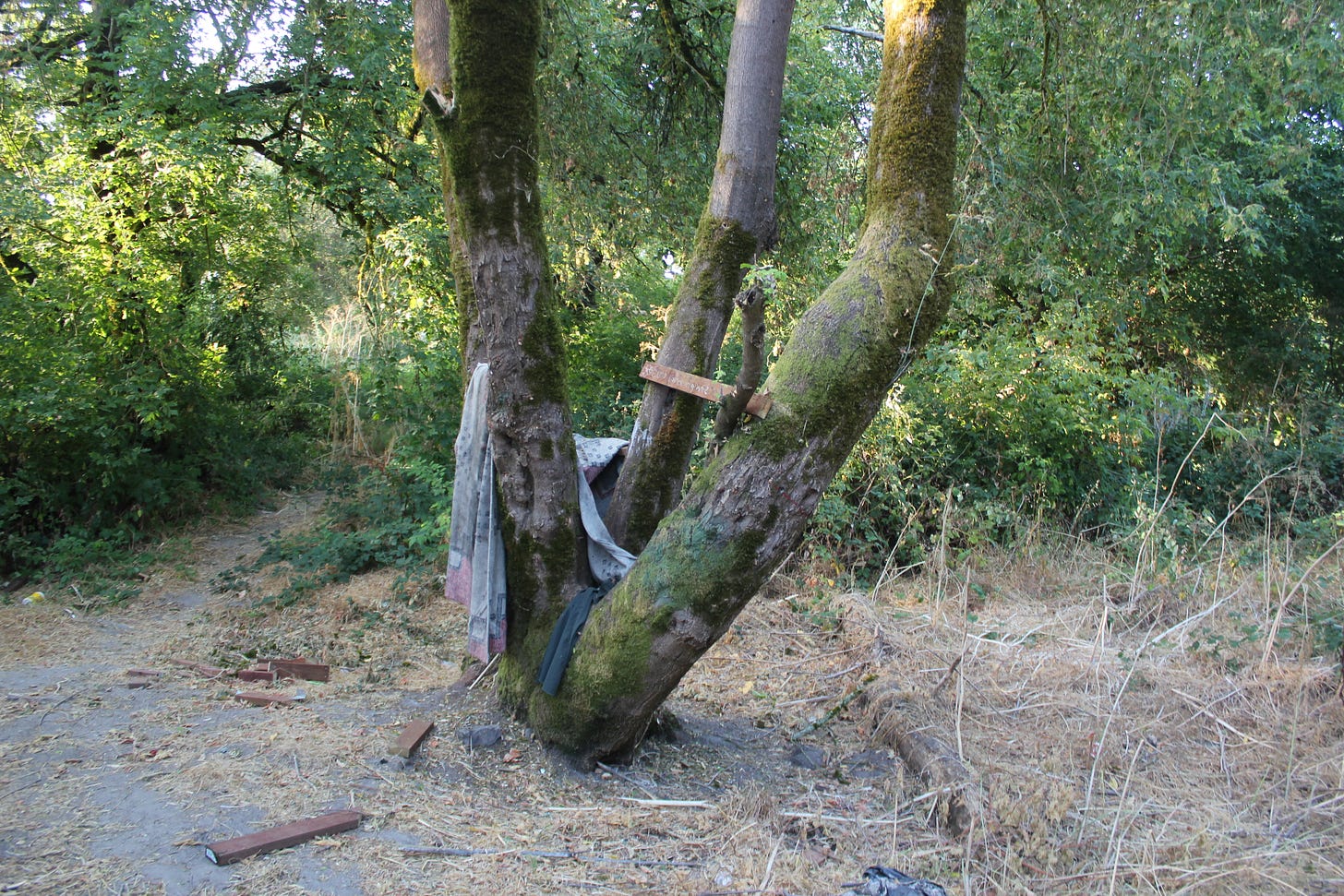
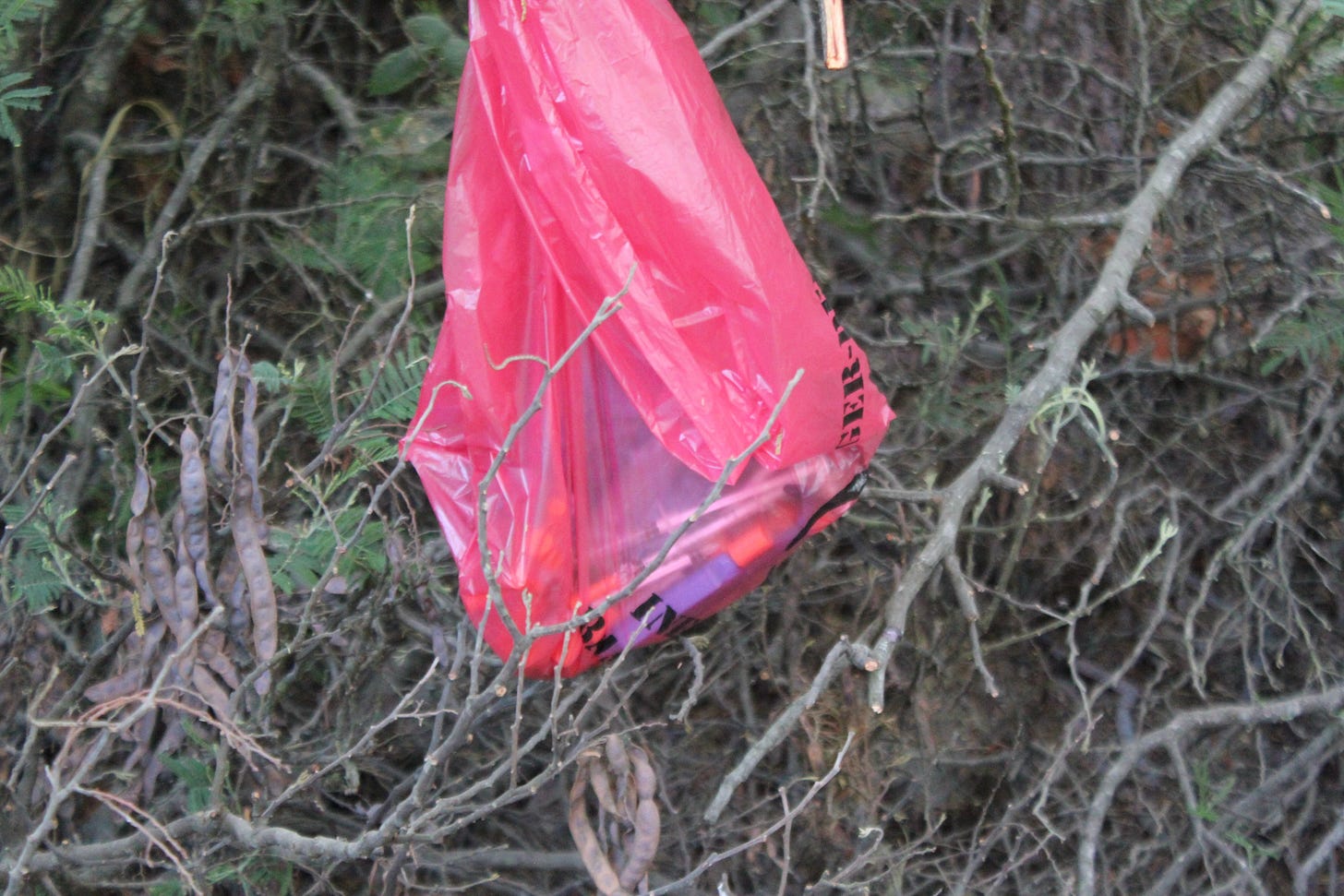
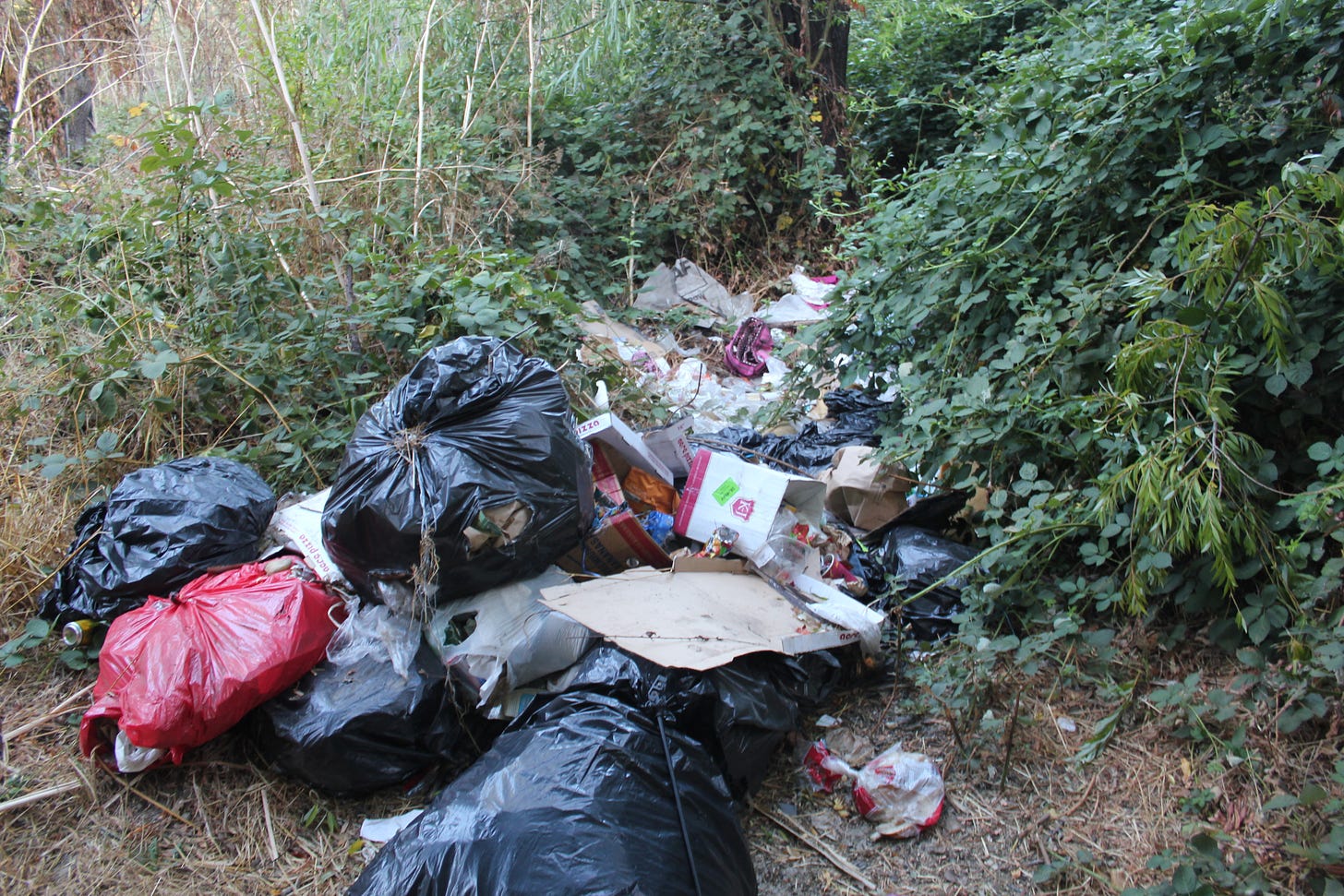

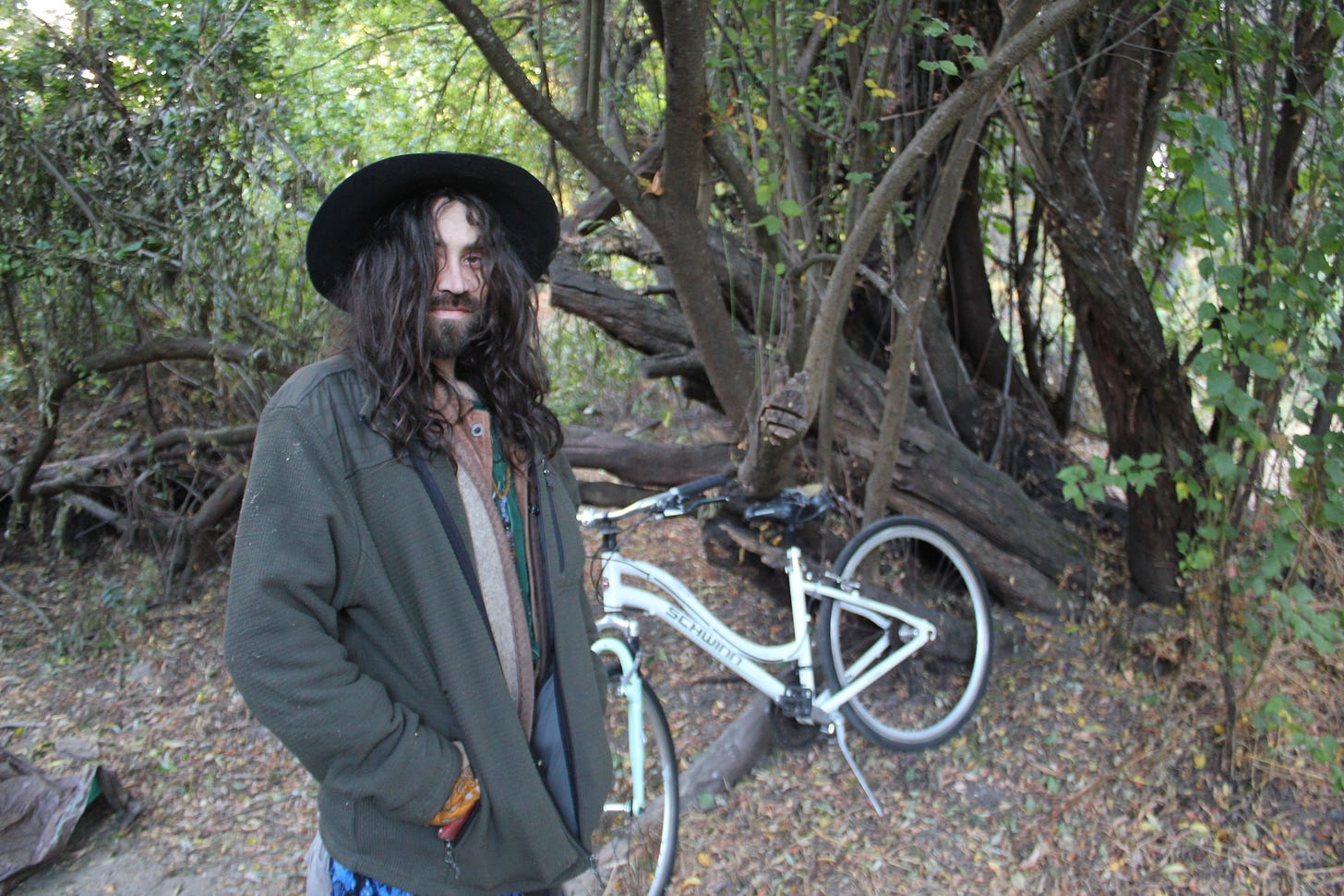
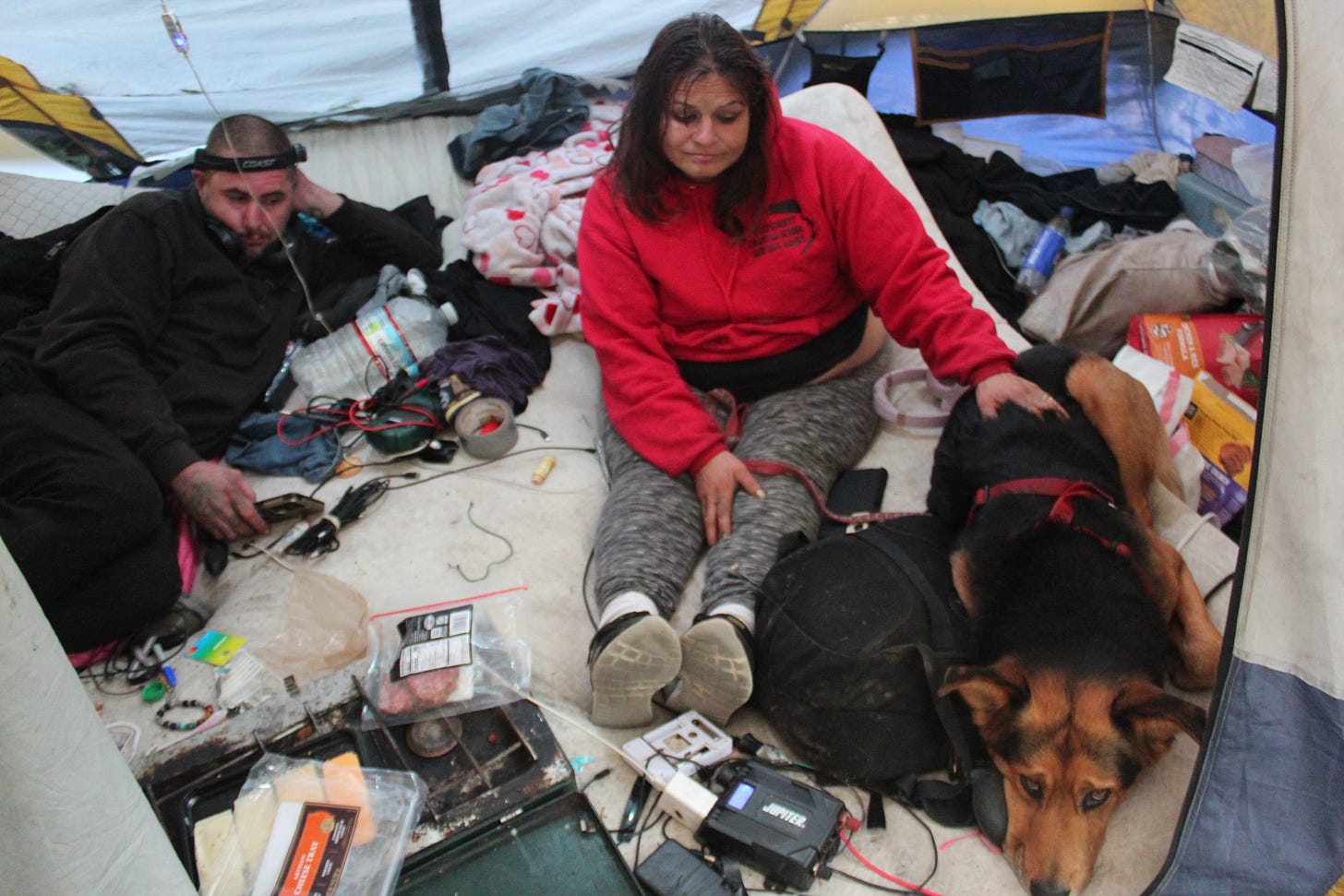
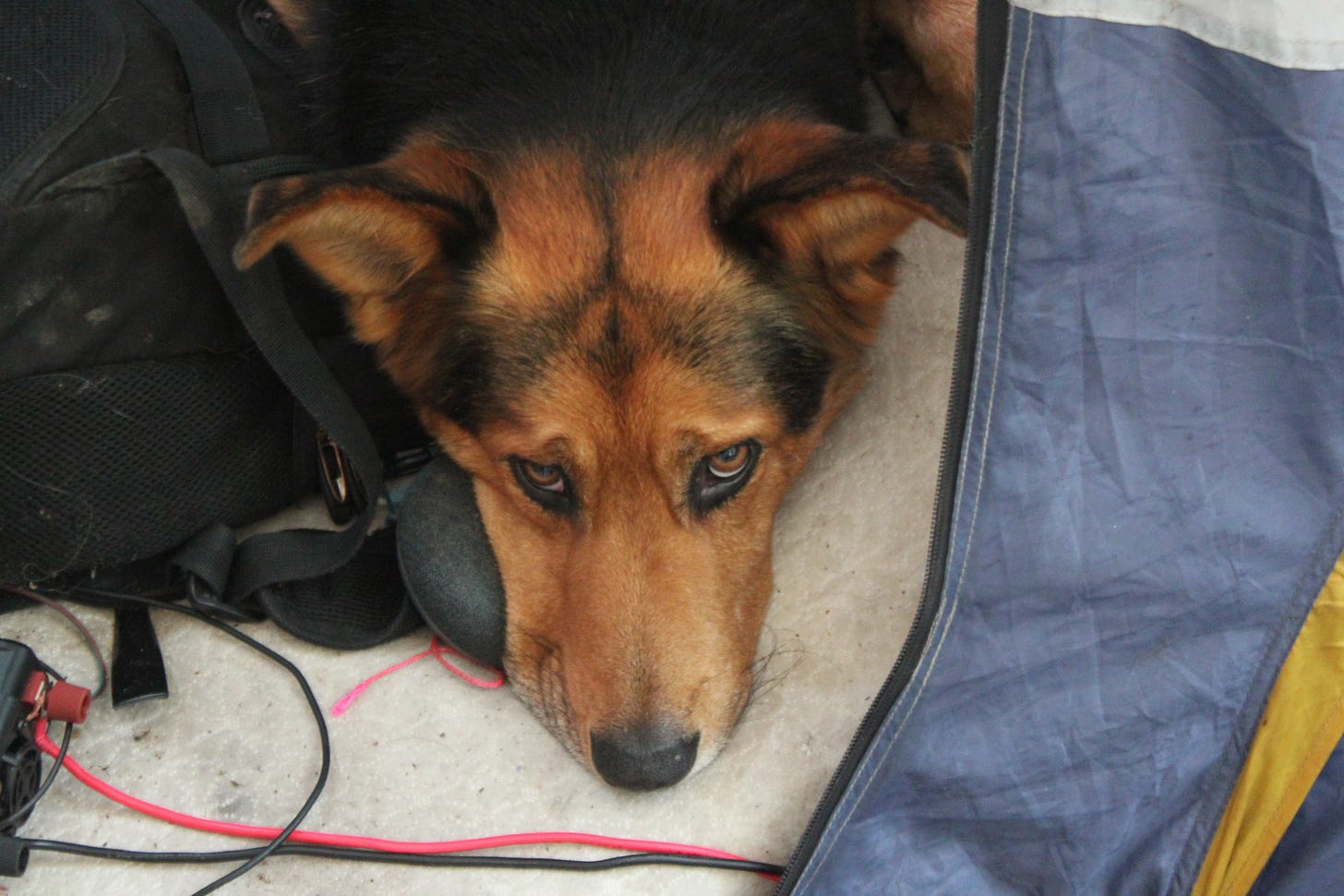
Love the Sebastopol Times. Your stories are so informative and, at the same time, very touching. Thank you.
Ezra et al, thank you.
As a nation, we voters have succumbed to the propaganda that systematic choices to incrementally address social issues is “socialism”. And then, individually, we complain about the mess that over decades we have created.
In our two party political system, no leadership favors solutions, it seems.
But thanks for your excellent essay.